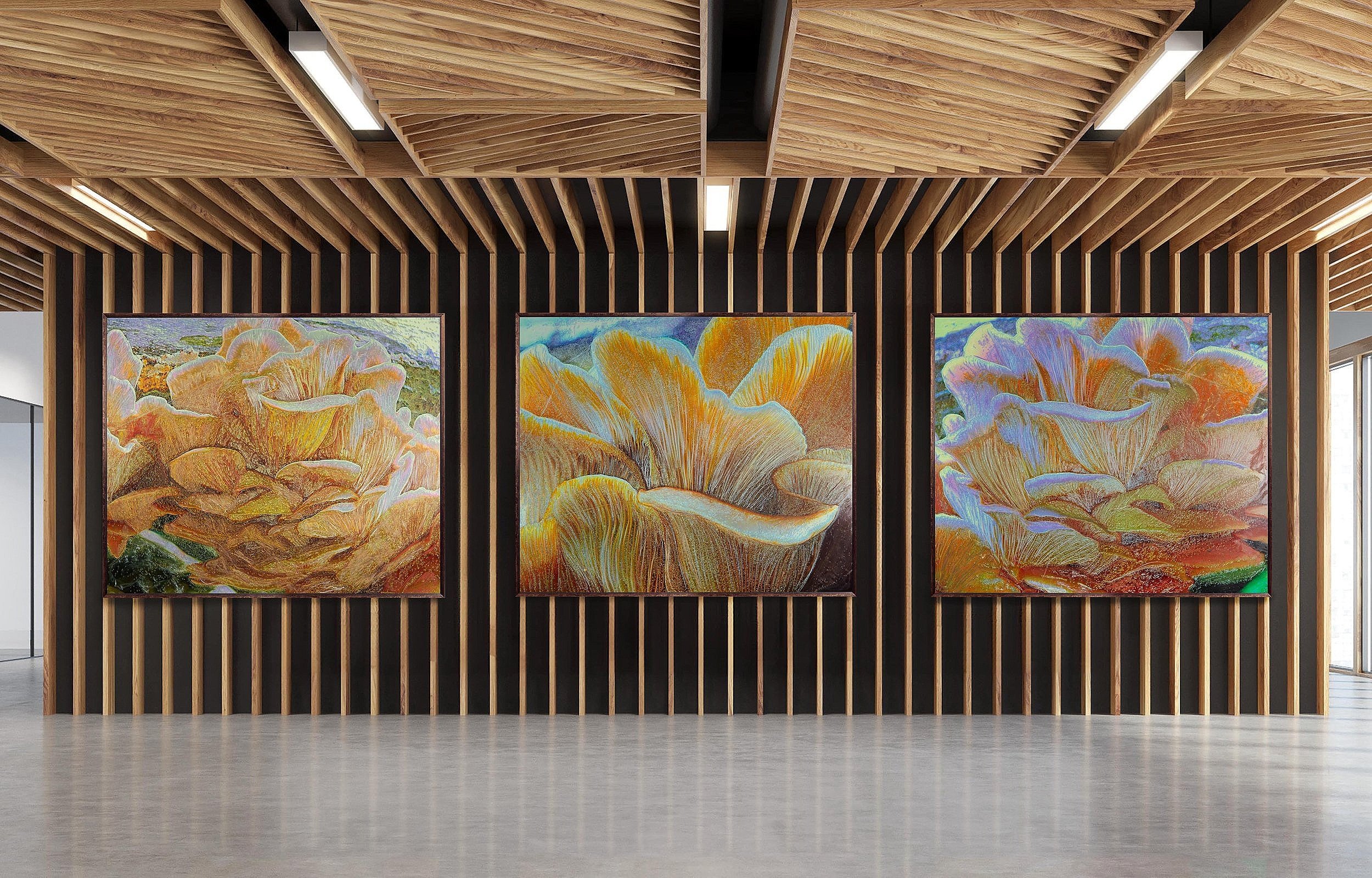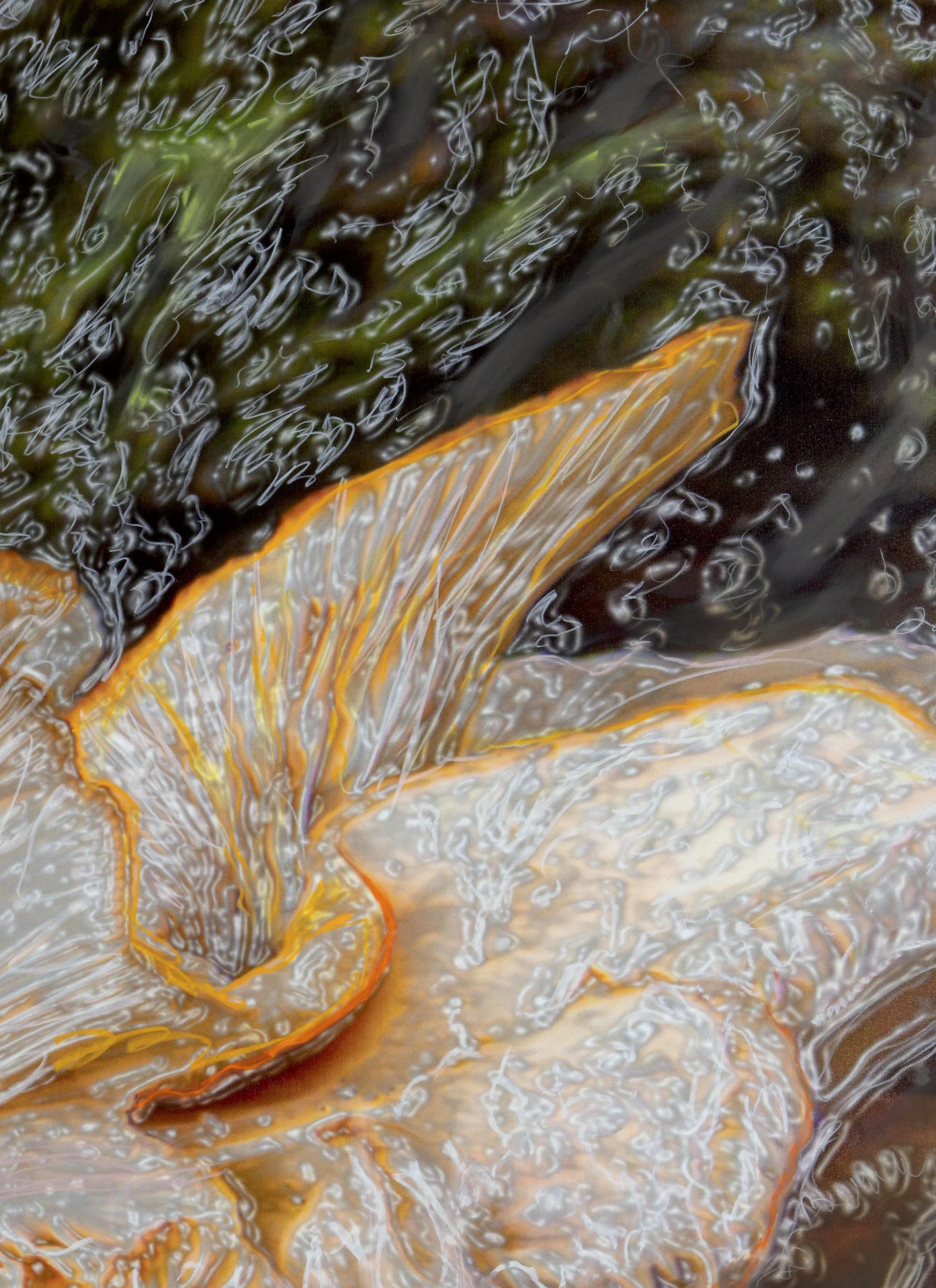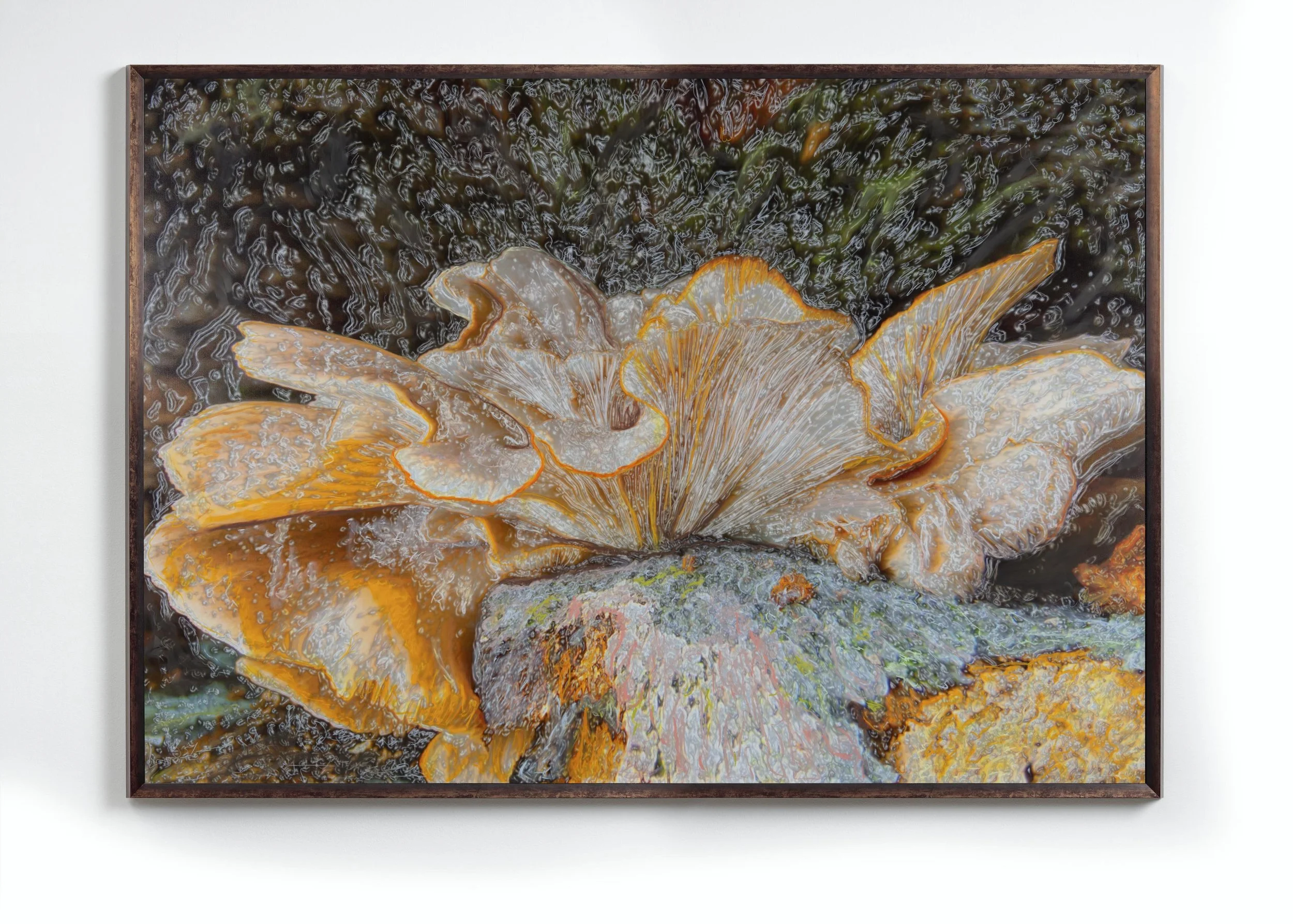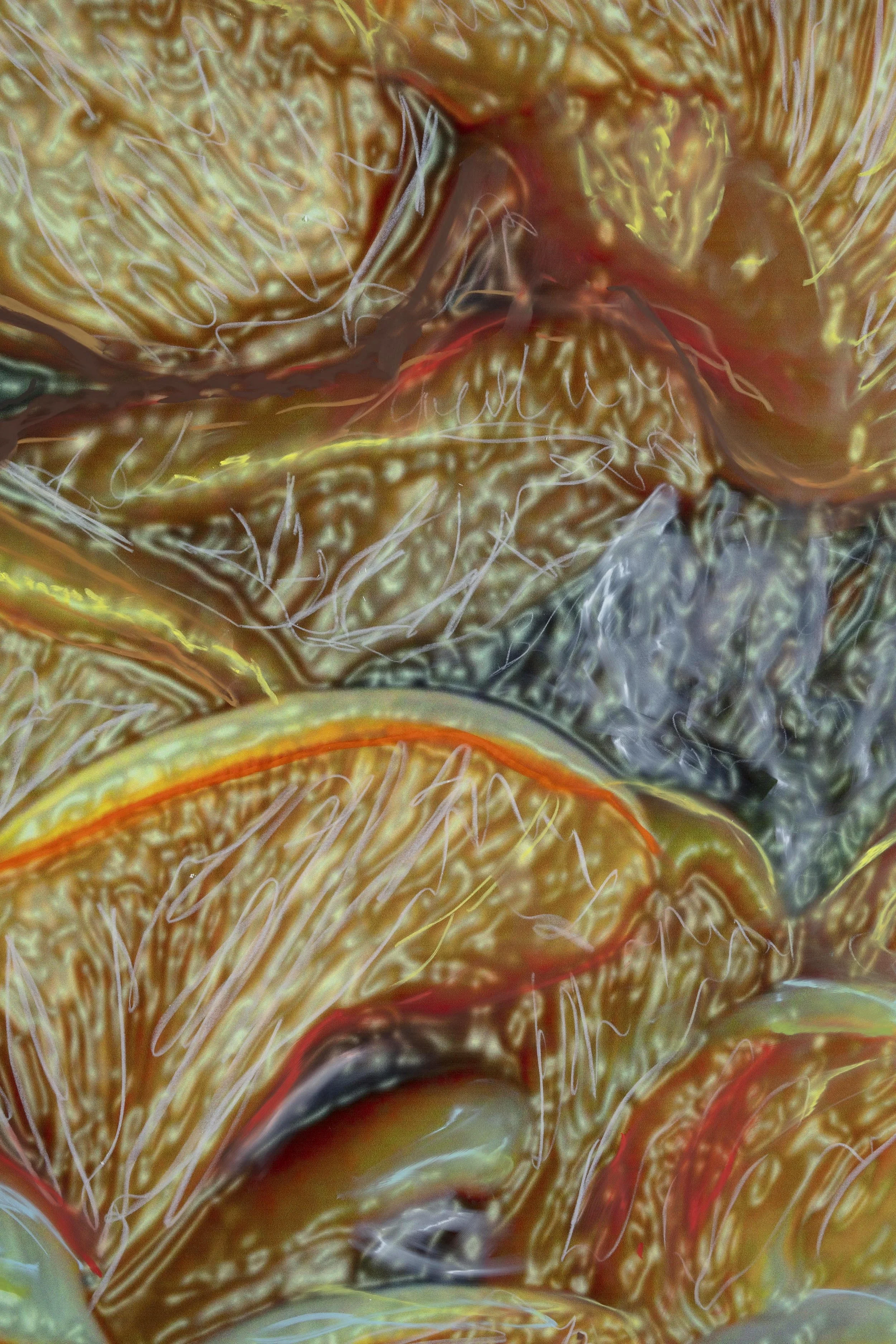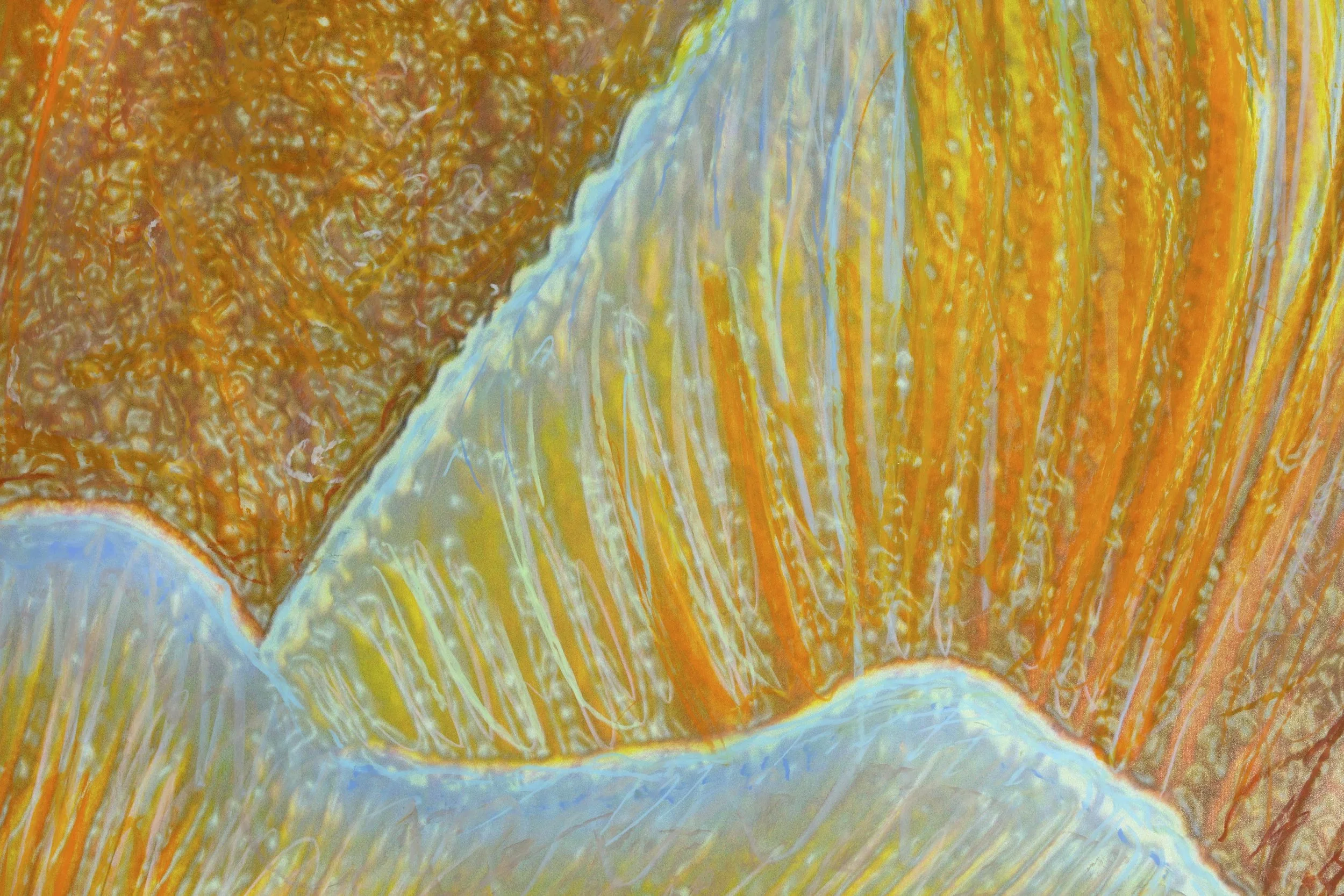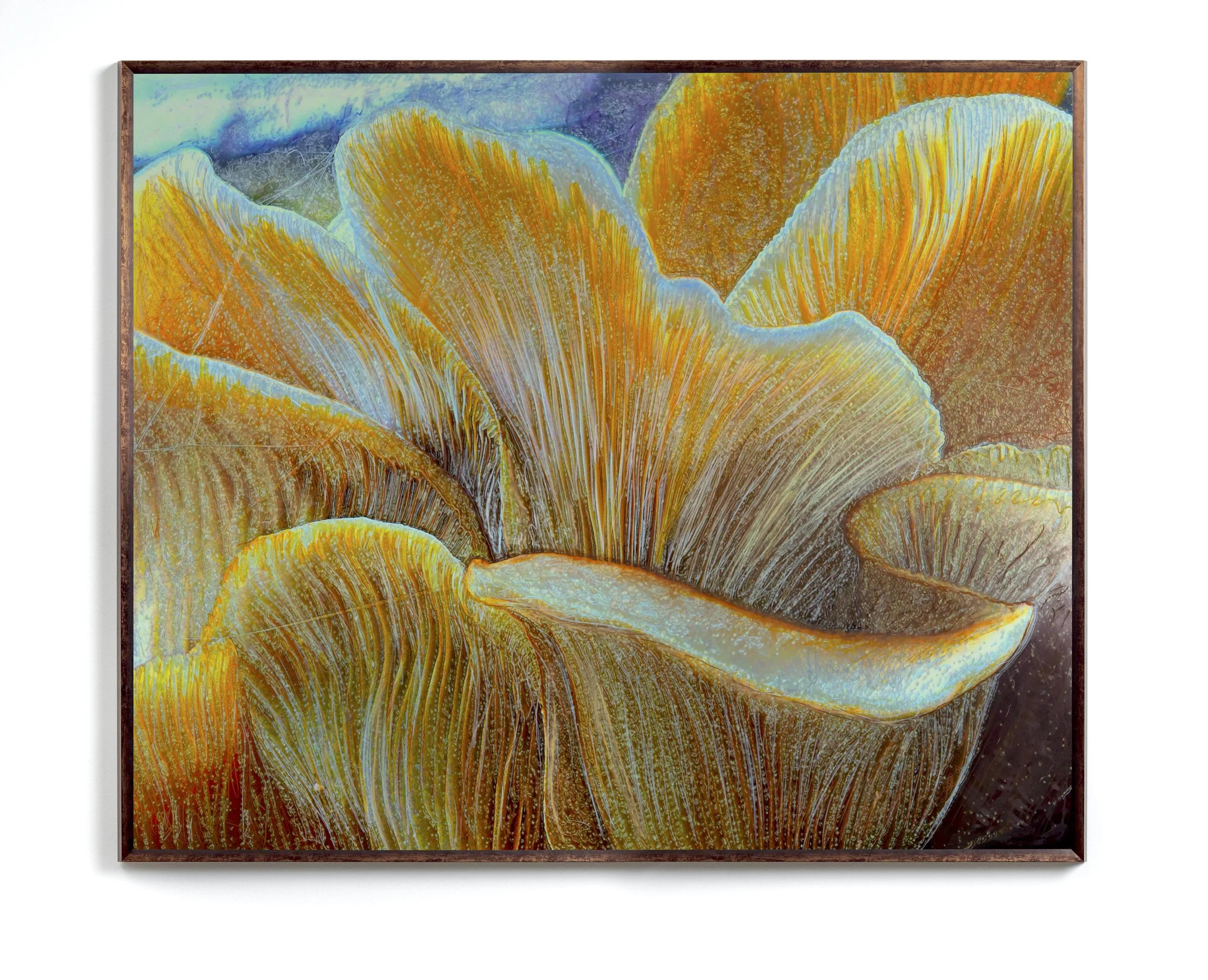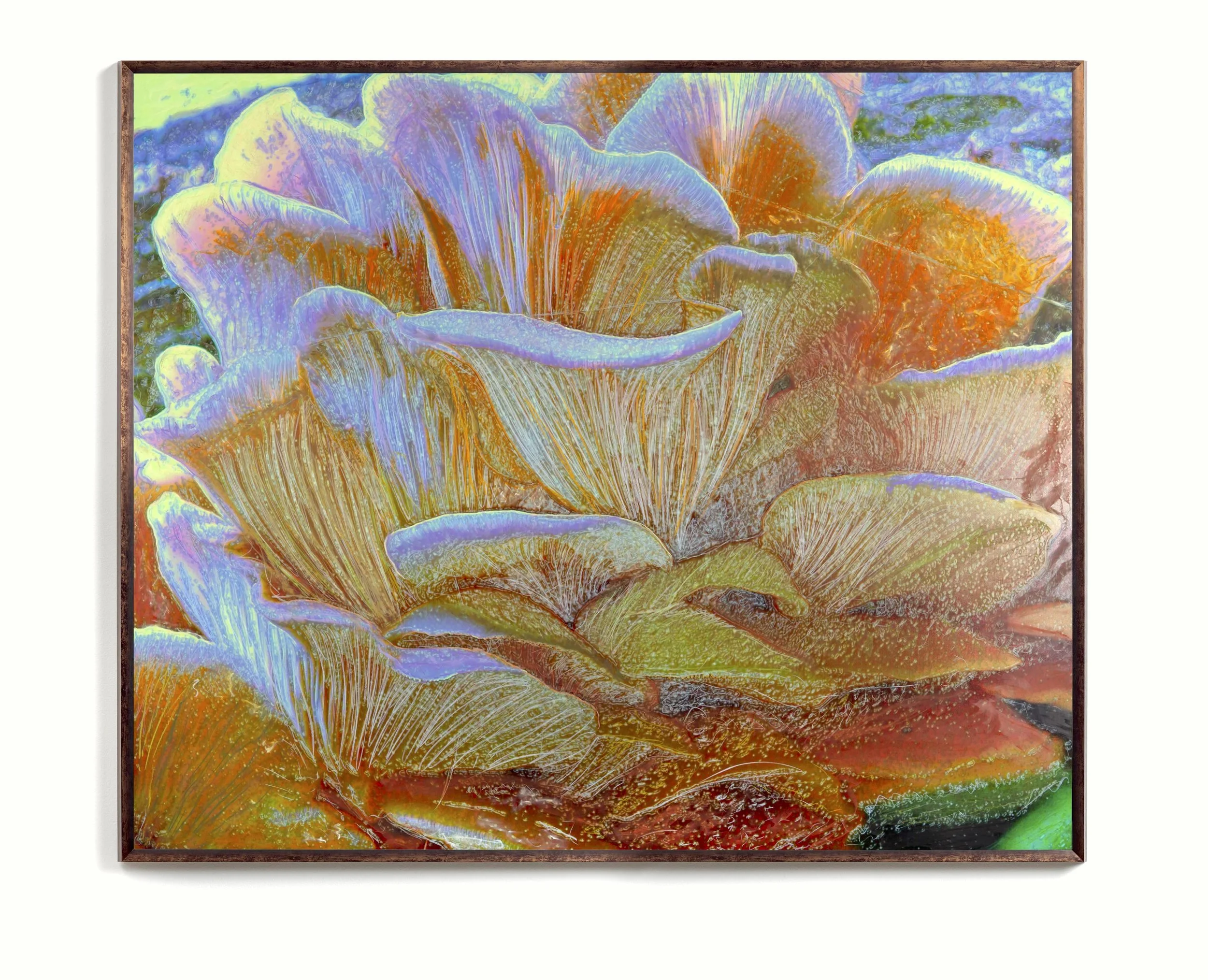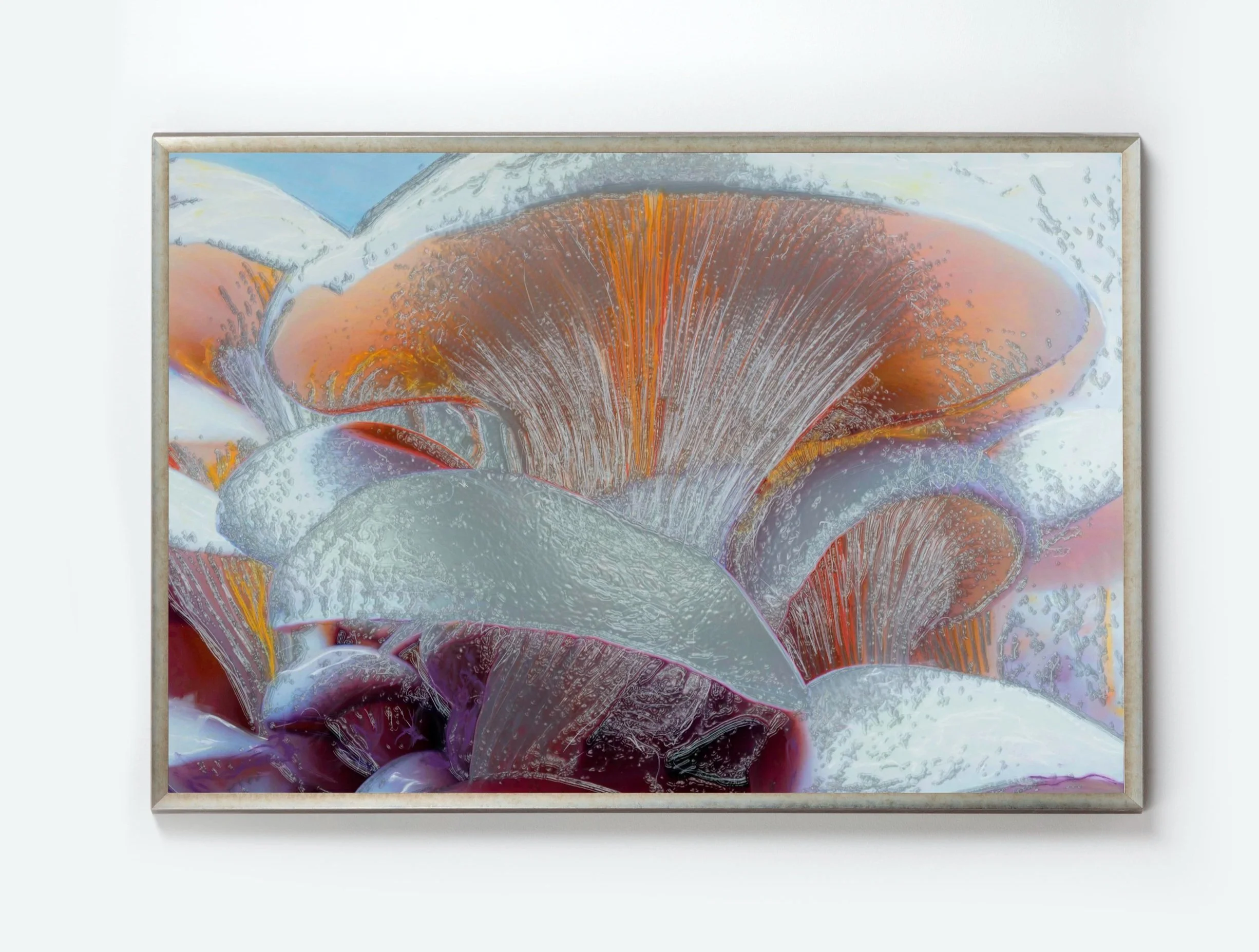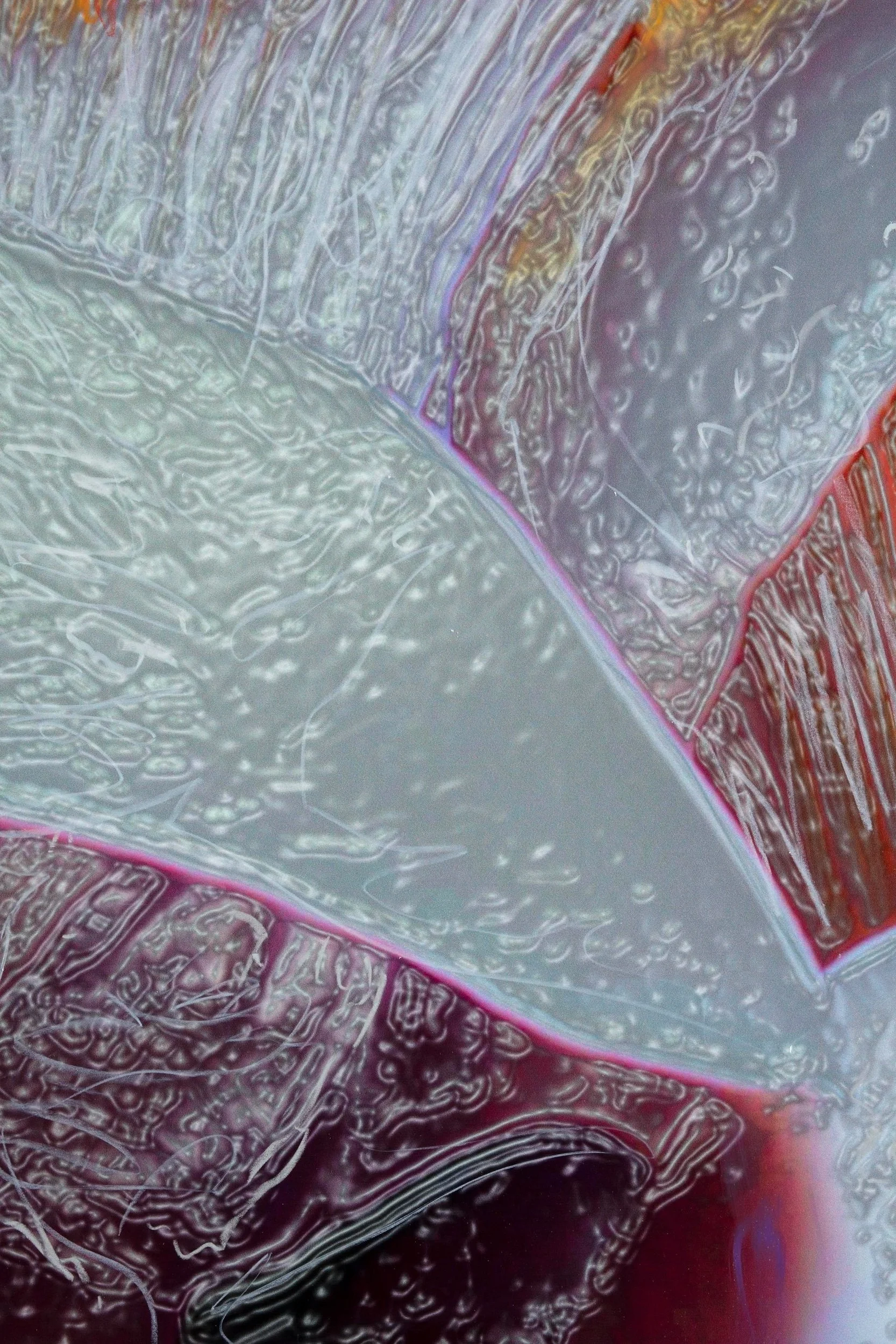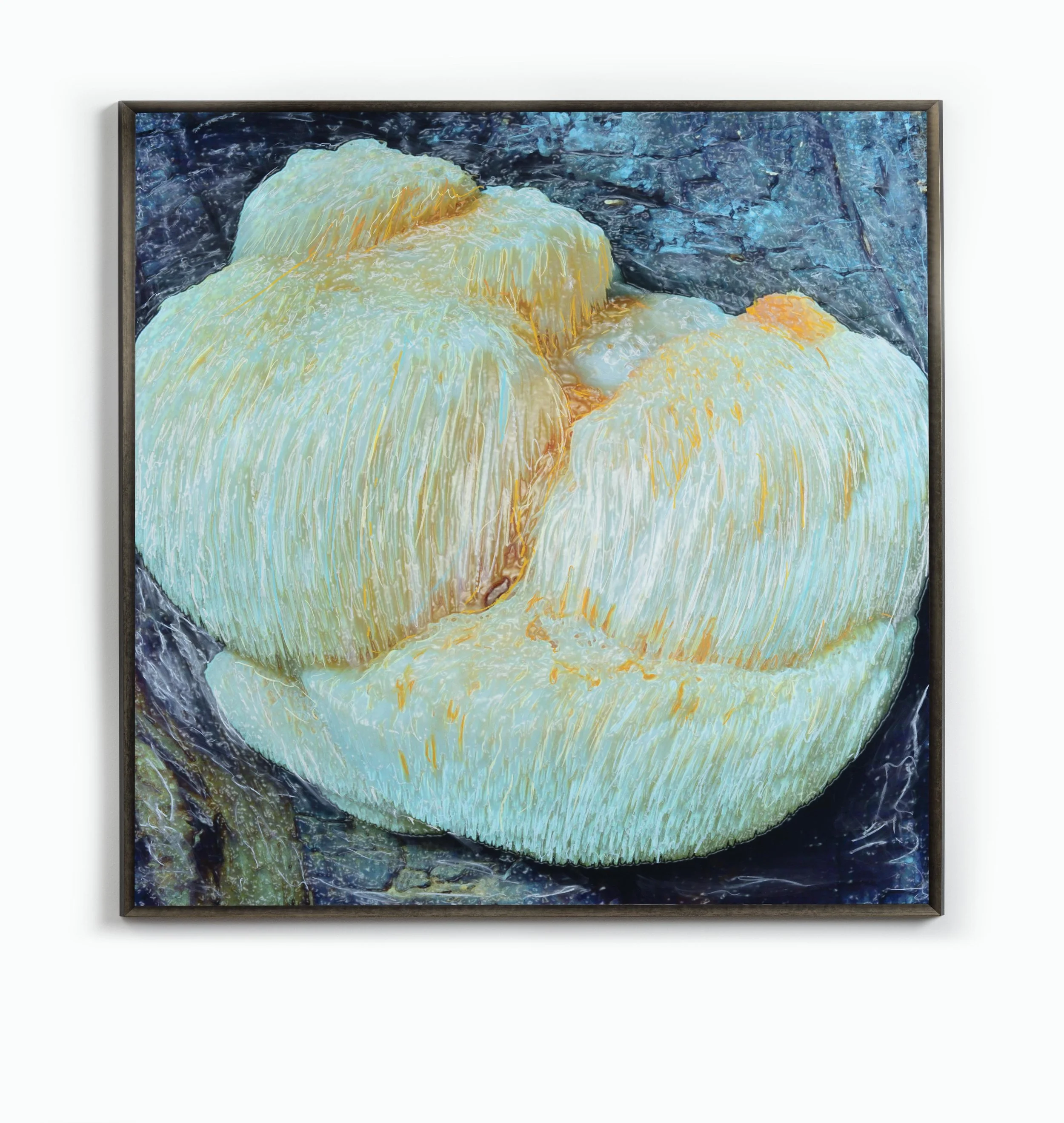Atlas Lustra (After O’Keefe)
2024
In this sylvan setting, rich with distinctive symbolism inspired by the artistic legacy of Georgia O’Keeffe, the observer is encouraged to craft their own interpretations of the subject matter portrayed in each painting. By creating a pictorial vocabulary of undulating forms and gradations of tone, botanical subjects are transformed into compositions that oscillate between abstraction and representation. Harnessing the technique of close cropping, the magnified flora seems to extend beyond its frames, as if without measurable boundaries.
By utilising a small, ordinary flower or fungi to suggest the immensity of nature, this body of work seeks to upend viewers’ initial impressions. Atlas Lustra departs from recent figurative compositions that have centered on the iconography of caves (as referenced in the Atlas Obscura series); and undertakes a visual exploration centered around the intricate interplay - and symbiotic relationship - between the human condition and the interconnectivity of all living things.
Utilising a variety of traditional and industrial techniques, these works on aluminium synthesises new topographical meanings and perspective interpretations. The paintings are layered, with a complex network of gestural strokes in vivid hues of oil and wax pastels atop a digitally-drafted template / composition. The synergy between colour and texture transcends mere representation, as the fusion of analog craft and digital modes of practice invite questions of medium and materiality that are answered through sustained consideration.
-
As a side note: it's worth noting that the series title references "Lustra," a collection of poems penned by the American modernist poet Ezra Pound. The collection was published in 1916 and is considered one of Pound's significant works, showcasing his experimentation with language, form, and style. The title "Lustra" itself refers to a period of five years, emphasizing a sense of renewal or purification.
Pound was a key figure in the modernist literary movement, and "Lustra" reflects his innovative approach to poetry. The poems in this collection cover a range of themes, including love, war, art, and society. Pound was known for his use of imagery, allusions, and a condensed, imagistic style influenced by his interest in Japanese and Chinese poetry.
